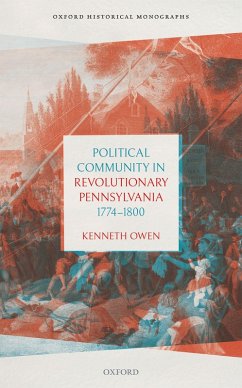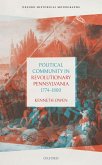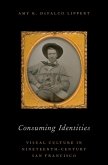Political Community in Revolutionary Pennsylvania challenges the ways we understand popular sovereignty in the American Revolution. Whereas previous histories place undue focus on elite political thought or analysis based on class, this study argues that it was ordinary citizens that cared most about the establishment of a proper, representative, publicly legitimate political process. Popular activism constrained the options available to leaders and created a system through which the actions of government were made more representative of the will of the community. Political Community in Revolutionary Pennsylvania analyzes political developments in Pennsylvania from 1774, when Americans united in opposition to Britain's Intolerable Acts, through to 1800 and the election of Thomas Jefferson. It looks at the animating philosophy of the Pennsylvania state constitution of 1776, a 'radical manifesto' which espoused a vision of popular sovereignty in which government was devolved from the people only where necessary. Even when governmental institutions were necessary, their legitimacy rested on being able to clearly demonstrate that they operated on popular consent, expressed in a variety of forms of popular mobilization.
Dieser Download kann aus rechtlichen Gründen nur mit Rechnungsadresse in A, B, BG, CY, CZ, D, DK, EW, E, FIN, F, GR, HR, H, IRL, I, LT, L, LR, M, NL, PL, P, R, S, SLO, SK ausgeliefert werden.
Hinweis: Dieser Artikel kann nur an eine deutsche Lieferadresse ausgeliefert werden.









